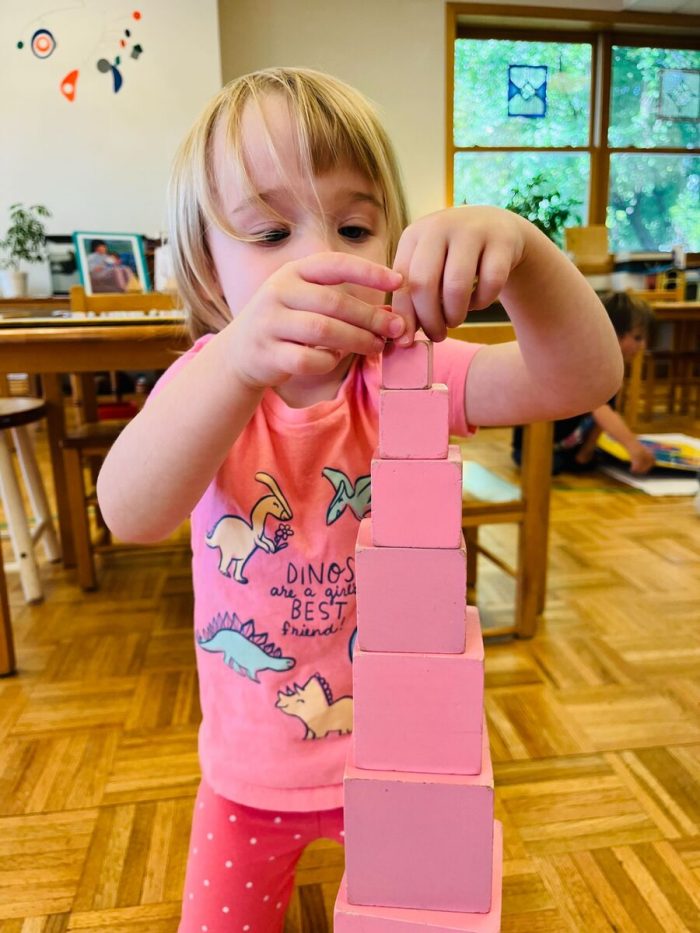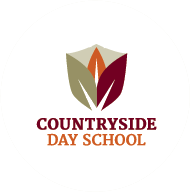by Dr. Dean Blase
Montessori educators have all experienced it: walking into a well-run, humming classroom where children are focused on learning, making and reinforcing new discoveries, and demonstrating works to younger peers. Where teachers are happily engaged in the best adult work imaginable, “observing the children, judging their ripeness, and figuring out when and how to stoke a child’s interest.” (Randolph et al 2023, 2.2). These images bring us home to Montessori classrooms.
For those of us who may be “fish in water” when it comes to answering the question, “is Montessori better for students than traditional methods?” a recent meta-analysis of Montessori research may help put the debate to rest: Montessori does have a robust positive effect on students’ academic and non-academic outcomes.
Led by Justus Randolph of Georgia Baptist College of Nursing, a team of researchers has conducted an exhaustive review of existing Montessori research articles and finds that Montessori Education does result in better outcomes for students overall in both academic and non-academic areas.
What makes this meta-study stand out is its sheer scope: the team located 2012 articles across various publications (peer reviewed, “grey,” association-based) published through 2020. They searched 19 major databases, examined various Montessori-related journals and “grey” resources, then Googled their way through hundreds more search terms. From the original 2014 articles, they used stringent criteria to winnow the list down to 32 studies with 204 “effect sizes” with a whopping 132,249 separate data points.
32 of 2012 articles were included if they:
- Compared Montessori to traditional education
- Demonstrated a significant effect size to show impact on academic and/or non-academic student outcomes
- Had sufficient data to be able to calculate both an effect size and any variances, showed enough “baseline equivalency” (a.k.a. pre-assessments) with an apples-apples approach (i.e. math pre-tests to determine math outcomes, vs. income data as a baseline for determining math outcomes). (Randolph et al.)
I reached out to Justus Randolph to ask how he had been inspired to launch this project. He noted that as a research methodologist with a background in education (who also happens to be married to a Montessorian), the approach fascinated him. About a decade ago, he decided to look through the research literature in Montessori and noticed that there wasn’t much in terms of a systematic review. He rolled up his sleeves and got started. What he found was that, because Montessori research is so fragmented, the process would take years. “It kept expanding like the universe.” He led his team through hundreds of articles, identified very rigorous measures, and set about reading. Eventually, they selected the 32 best articles (see resources linked below).
He was joined by a team of researchers, including Angeline Lillard, who he brought into the study after several conversations in which he had requested data from her, and who provided Montessori expertise to the project. Lillard joined our conversation and shared that she remains committed to bringing these findings to effect policy changes through such measures as updating Montessori as an evidence-based intervention in the U.S. Department of Education’s What Works Clearinghouse, which can serve as a strong, evidence-based stamp of approval. She is also excited about further research opportunities in Montessori such as going deeper into subgroup analysis and conducting cost analysis studies to determine whether Montessori is providing sufficient bang for its buck, which is an important factor for public schools implementation.
The Upshot?
These highly-vetted research studies show again and again that students in Montessori schools do better than their non-Montessori counterparts, with positive effects especially notable in general academics (composited across math, language, science, and social studies); with strong showings in both language and math. Even more impressive was their finding that the academic research studies met the stringent criteria of moderate to high quality of evidence.
What Do We Do With This Information?
We have several calls to action:
- Participate in efforts to upgrade Montessori’s standing with the USDOE by updating its 2005 assessment to acknowledge that there is sufficient evidence gathered to show Montessori is an effective educational intervention.
- Conduct further research, in science & social studies (where there were too few studies to meet the high quality measure), across multiple subgroups, to determine how we might better serve various students’ needs, and longitudinal studies to explore long-term impacts of Montessori on adults who went to Montessori schools.
Resources
Montessori education’s impact on academic and nonacademic outcomes: A systematic review
32 Studies included in Randolph Meta-analysis
References
Randolph, Justus. J., Bryson, A., Menon,L., Henderson, D. K., Kureethara Manuel, A., Michaels, S.,rosenstein, d. l. w., McPherson,W.,O’Grady,R.,& Lillard,A. S. 2023. “Montessori education’s impact on academic and nonacademic outcomes: A systematic review.” Campbell Systematic Reviews, 19, e1330.https://doi.org/10.1002/cl2.133074 of 74|RANDOLPHET AL.
U.S. Department of Education. What Works Clearinghouse. https://ies.ed.gov/ncee/wwc/InterventionReport/321, Accessed 8/29/2023.
As published on
https://amshq.org/



Leave a Comment